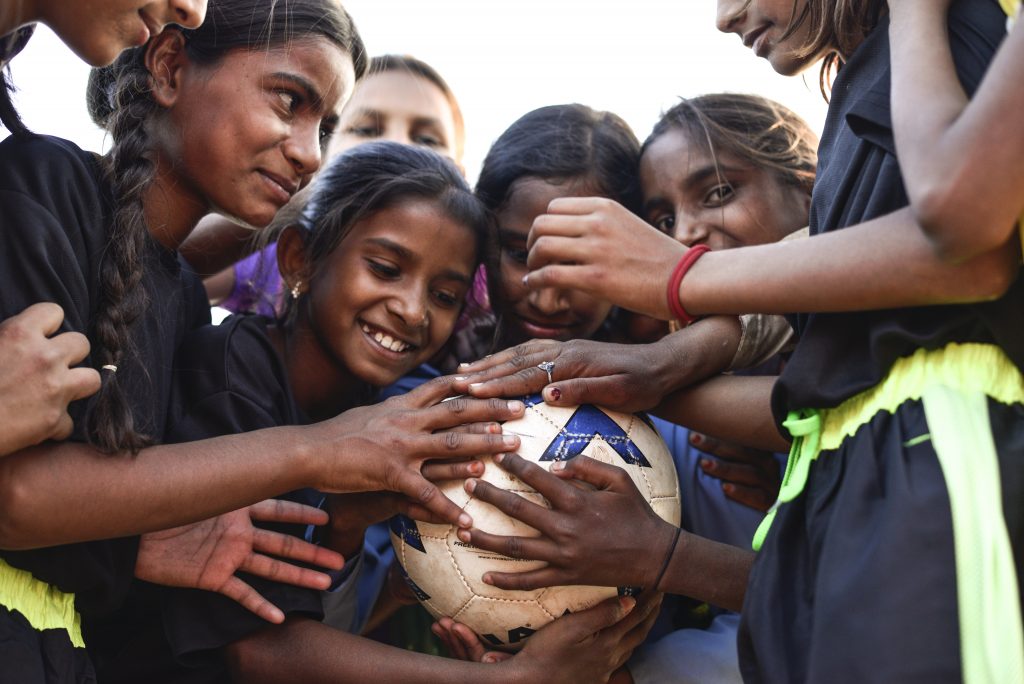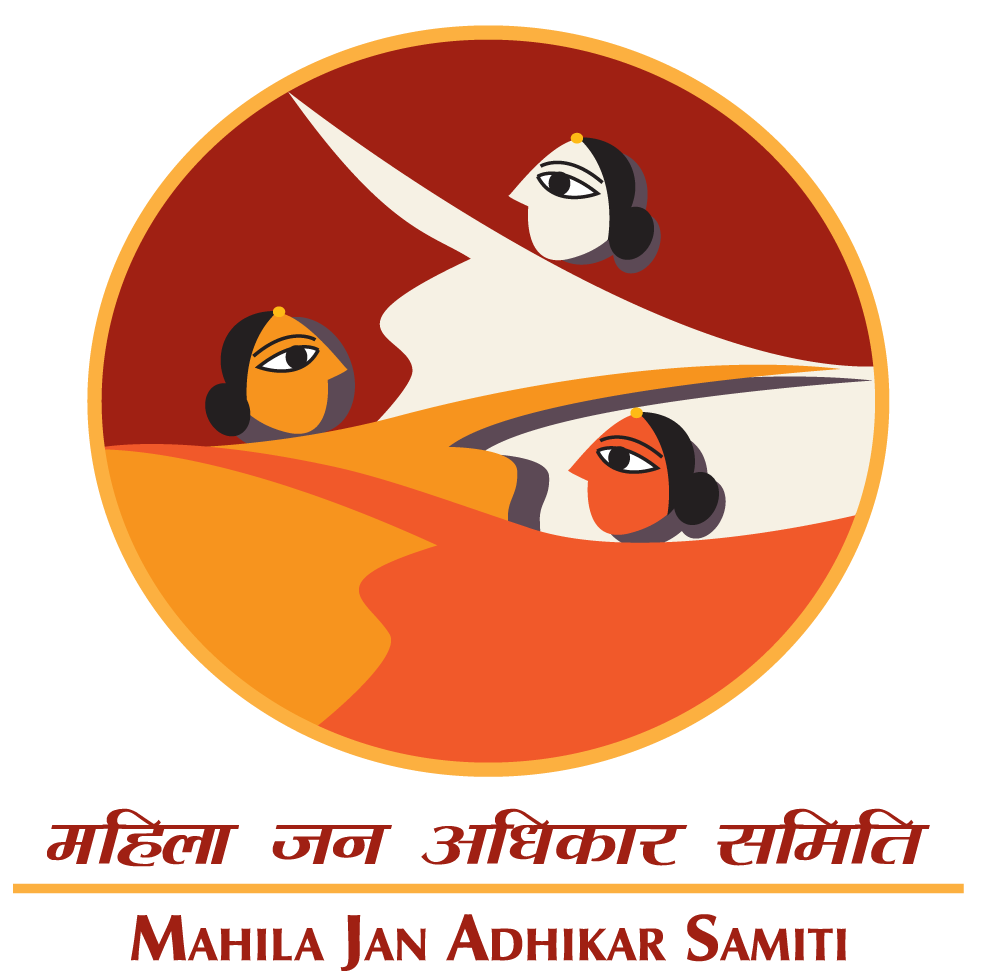Kicking Out Patriarchy, Embracing Change

The story of how girls started coming out of their homes to attend soccer camps
With an emphasis on sending out a strong message against child marriage in Rajasthan, the organisation collaborated with HAQ (Centre for Child Rights, Delhi), with the support of the Australian High Commission, to mobilize girls ages 10-18 to play football. The objective was to use sports, in particular football — which is traditionally seen in the villages as a ‘male sport’ — to break gender norms, help girls move beyond their family confines, take greater control over their bodies, be able to better negotiate their own aspirations and ultimately prevent their own early marriage, as well as those of others. This programme also encourages married girls to step out of their traditional roles of daughter-in-law, wife and mother.
With an emphasis on sending out a strong message against child marriage in Rajasthan, the organisation collaborated with HAQ (Centre for Child Rights, Delhi), with the support of the Australian High Commission, to mobilize girls ages 10-18 to play football. The objective was to use sports, in particular football — which is traditionally seen in the villages as a ‘male sport’ — to break gender norms, help girls move beyond their family confines, take greater control over their bodies, be able to better negotiate their own aspirations and ultimately prevent their own early marriage, as well as those of others. This programme also encourages married girls to step out of their traditional roles of daughter-in-law, wife and mother.
In November 2016, a Kishori Khel Utsav (Sport Festival) was organized in Meena Ka Naya Gaon as the first major event of the project. The playground
was cleared of the long-standing squatters with the help of villagers, local
panchayat and tehsildar (revenue official). About 350 girls attended the event,
many among them travelling on tractors from remote villages to reach the
venue. Some came to just witness something they had never seen before. Nearly
400 children and guests participated in the camp. Everyone was fed by the
Meena Ka Naya villagers. The parents of these girls participated in the closing
day of the coaching camps. Local resources were organized for the Kishori Khel
Utsav by the families of Meeno ka Naya Gaon to feed 400 people.
In Chachiyavas, only four girls came to the first coaching camp. These girls
then went back to their village, encouraged their friends and made a team of 26
girls who started playing football on a private farm land in their village. They
then met the chief of the Zila Parishad (District Elected Council) demanding a
playground for the village. The chief promptly allocated Rs. 25,000/- from the
district council fund and called his engineers to prepare the field. Their team
was led by 12-year-old Payal who was awarded the best player and best
goalkeeper in the final camp.
These Chachiyawas girls also prepared a letter and gave it to their school
principal requesting for their classes to
finish 15 minutes before the scheduled
time to give them enough time after
school to practice football. When they
were not granted permission, they had
their parents sign the demand and re-
submitted the letter to the school
authorities. This time, their demand was
granted.
Seeds of unity and solidarity amongst the
girls were sown through football. In the first residential camp, girls of the same
village stayed together. However, in the subsequent camps, girls from different
villages stayed with girls from other villages of their own age. Activities were
decided based on the girls’ consensus. This allowed the girls to develop new
identities, make new friends and negotiate among themselves.
To help friends get family approval to play, girls formed groups to go to each
other’s homes to talk to parents in case their friends missed practice sessions. In
some cases, project staff also accompanied the girls.
Football training has provided physical
fitness training such as running, forward,
lateral and backward jumping, etc., basic
football skills including footwork, ball
passing and control, dribbling, running
with the ball, use of legs and body for ball
control and use of physical strength. Girls
were put into groups of four for focused
training in special skills required in the
specific field positions of their choice,
personal orientation and acquired skills. The aim was to prepare the girls for
competition at the district, state, and national level.
Football became a medium of engagement with all village stakeholders and it
proved to be a good way to challenge everyone’s thinking on gender and child
rights.
